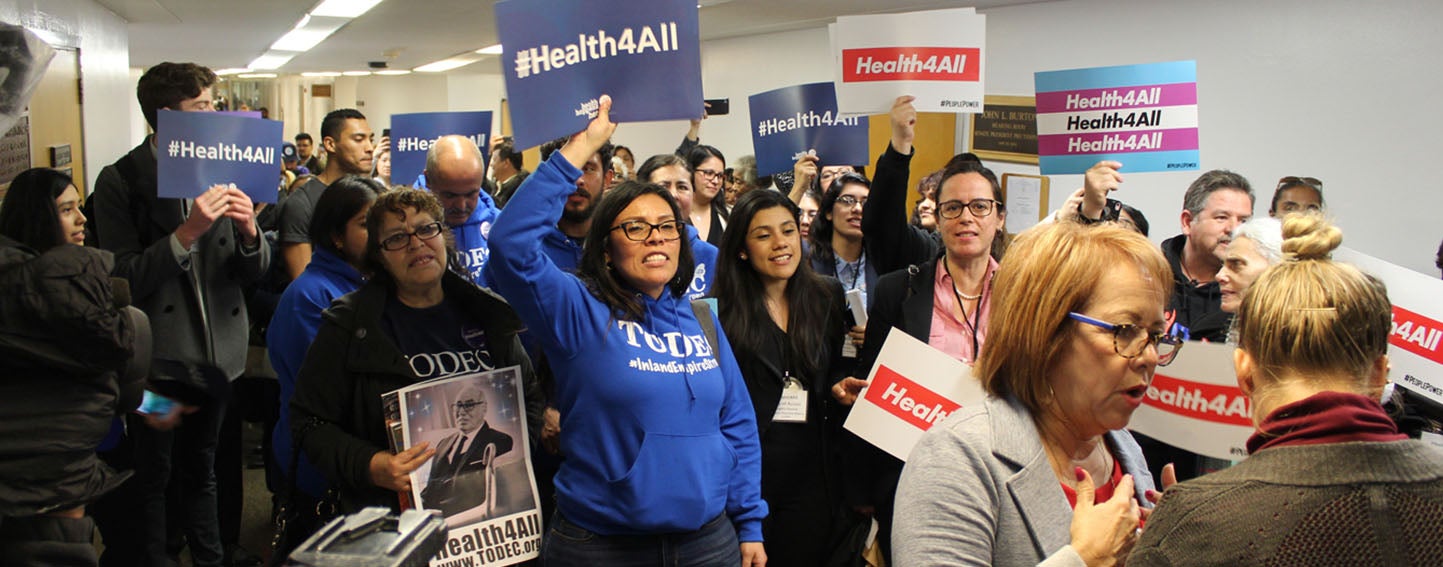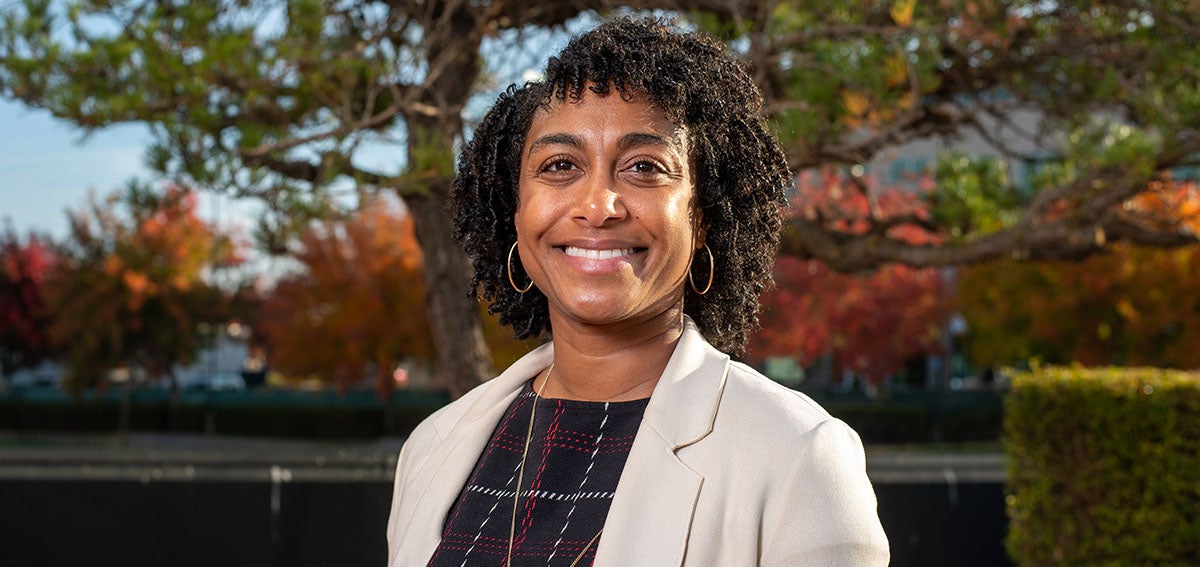

Nine years after President Barack Obama signed the Affordable Care Act (ACA) into law, the share of Americans who are uninsured remains at a historic low. In California, the uninsured rate remains stable at 8.5% — nearly 50% lower than it was in 2013, before the ACA was implemented. And yet, millions of Californians remain uninsured (PDF), with undocumented adults making up the largest portion of them.
Recent reporting from Uncovered California, a collaborative launched by the USC Annenberg Center for Health Journalism with funding from CHCF, describes the “shifting patchwork of local programs” that cobbles together care for California’s undocumented adults and the challenges people face when they don’t have comprehensive coverage.
Take Holandesa Lopez, who emigrated from Nicaragua 17 years ago. Lopez is undocumented and does not have health insurance. The Uncovered California reporters write that a few years ago, Lopez developed abdominal pain so unbearable that she sought care in an emergency room. Under California law, emergency rooms must treat all patients who come through their doors, regardless of insurance status. She learned that she had a benign mass in her pancreas, but the hospital wouldn’t remove it because it wasn’t an emergency. Lopez suffered for another year — during which the mass doubled in size — before she received pro bono surgery at a different hospital through a charity program.
For the Undocumented, County Programs Are Critical
Many uninsured Californians who have low incomes and lack other sources of care rely on county-run programs for the medically indigent. But as the journalists note, if you are undocumented and uninsured, where you live matters. A new report by the Insure the Uninsured Project (ITUP) provides a snapshot of the variation among different areas. Some counties offer health care services to qualifying residents regardless of immigration status — others do not. Anthony Wright, executive director of Health Access California, told reporters, “The county is a last-resort safety net that is there in some areas and less so in others. People have different access to health care based on the county they’re in.”
Between October 2017 and July 2018, the number of county-run programs that accept eligible adults regardless of immigration status increased from 11 to 47. However, as the UC Berkeley Labor Center points out, “programs vary significantly in terms of services covered and income eligibility standards, and some programs cap enrollment.”
Shortly after his inauguration, Governor Gavin Newsom proposed the expansion of full-scope Medi-Cal benefits to undocumented immigrant young adults with low incomes. In 2016, California expanded full-scope Medi-Cal benefits to undocumented immigrant children in low-income households up to age 19; Newsom wants to extend eligibility up to age 26. Some legislators propose going further. State Senator Maria Elena Durazo (D-Los Angeles) introduced SB 29, and Assemblymembers Rob Bonta (D-Oakland) and David Chiu (D-San Francisco) are authoring AB 4, both of which would expand Medi-Cal to all Californians with low incomes regardless of immigration status.
Legislation Advances
California Healthline reports that immigrants and activists gathered at the State Capitol on March 20 to show their support for SB 29 at a Senate Health Committee hearing. Some supporters carried photos of family members who had passed away after postponing doctor visits or forgoing needed medical treatment. Others carried signs saying #Health4All. The committee approved the bill on a 7–1 vote. Senator Durazo said, “It’s a next step in moving toward expanding Medi-Cal to cover every Californian, no matter what their immigration status is.” The bill now moves to the Senate Appropriations Committee.
Newsom also included an expansion of Medi-Cal to all young adults up to age 26 in his budget proposal (PDF) . Most Californians (64%) support this, according to the findings of a new statewide survey conducted by the Public Policy Institute of California.
Update on the Lawsuit that Could Invalidate the ACA
The ACA’s supporters barely had time to blow out the nine candles on its birthday cake before it came under renewed attack. This week, the Trump administration endorsed the ruling of US District Judge Reed O’Connor of the Northern District of Texas that the ACA is unconstitutional and all of its 974 pages should be invalidated. If the plaintiffs in the lawsuit — about 20 Republican state attorneys general now supported by the Trump administration — ultimately prevail in the US Supreme Court, the ramifications could be devastating for Americans. The New York Times reports that 21 million people could lose their health insurance, 12 million adults could lose Medicaid coverage, and 133 million Americans with preexisting conditions could lose protections from discrimination by insurers. The operational provisions of the law reach into every corner of the health care industry, and providers, health plans, and governments at all levels would be directly affected.
When O’Connor made the decision in December 2018, Washington, DC, policy experts Billy Wynne and Dawn Joyce pointed out on The CHCF Blog that “even the harshest critics of the ACA quickly attacked the decision.” For example, “the editorial board of the Wall Street Journal characterized the decision as a ‘blunder’ and predicted it [would] be overturned.”
However, as Dylan Scott reports in Vox, “the Trump administration wants the federal courts to overturn the Affordable Care Act in its entirety. . . . It is now the official position of President Trump’s administration that all of the ACA — the private insurance markets that cover 15 million Americans, the Medicaid expansion that covers another 15 million, and the protections for people with preexisting conditions and other regulations — should be nullified.”
A group of Democratic attorneys general, led by California’s Xavier Becerra, is appealing the ruling.
Authors & Contributors






